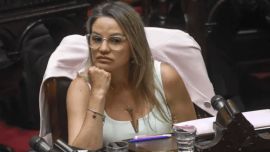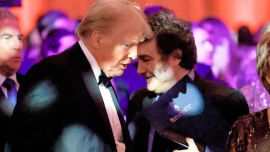Brazilians’ worries about unemployment and the latest Covid-19 surge continue to chip away at Jair Bolsonaro’s popularity, a poll found, leaving former president Luiz Inácio Lula da Silva on track to win this year’s election.
The economy is the nation’s biggest problem, according to 37 percent of those surveyed by Genial Investimentos and polling company Quaest Consultoria. Unemployment was their top concern, followed by the rate of economic growth, and then inflation.
The current administration has tried to ease the economic pain of the pandemic through government assistance programs. Despite cash payments to the poor in December, 51 percent of respondents said their ability to make ends meet actually worsened over the last three months. Brazil finished 2021 with the recovery stalled and inflation above 10 percent.
The aid has not been enough to significantly boost the president’s popularity either. In a head-to-head match up for October’s election, 44 percent of Brazilians surveyed said they would back Lula, while 23 percent favoured the incumbent Bolsonaro, numbers that held relatively steady from the last poll in December when Lula led 46 percent to 24 percent.
As the omicron variant sweeps across the nation and case numbers surge, fears about the virus are also on the rise: 28 percent of respondents said the pandemic is their main worry, up from 19 percent last month.
Bolsonaro has tried to downplay the danger of the latest spike in Covid infections, telling news website Gazeta Brasil on Wednesday that omicron was “welcome” in his country.
“People who really understand it say that it has a very high capacity to spread, but a very small lethality,” he said in an interview. “They say it could even be a vaccinating virus,” he added, noting that some specialists “say that omicron is welcome and could signal the end of the pandemic.”
Brazil has suffered one of the world’s worst pandemic tolls with over 600,000 people killed by the virus, second only to the United States.
The survey of 2,000 people was conducted digitally from January 6-9, and has a two percent margin of error. The election for president and Congress is scheduled for October 2.
by Andrew Rosati, Bloomberg



















Comments